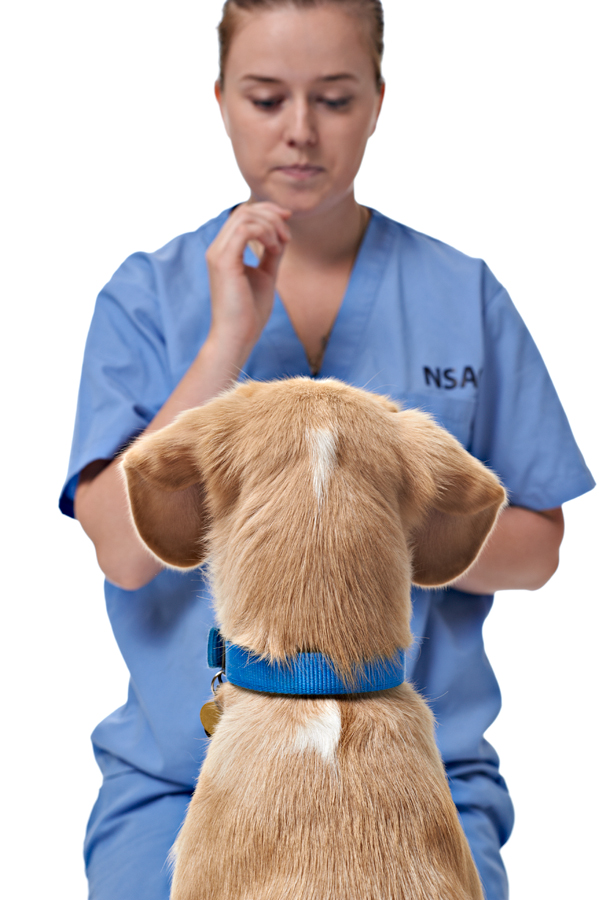How to Find the Right Dog Trainer for you and your Best Friend
Written By: Dr. Gwen
The most important investment of time, energy and money in your new dog’s future is training. The number one reason dogs are surrendered to shelters is for behavior problems. Most of these behavior issues could have been prevented with good training and early intervention.
Training a dog requires the caregivers to understand how to train a dog. In the past couple of decades, there has been many new discoveries about how dogs learn and how we can help them have happy fulfilled lives by understanding their body language and emotional states. Consider how our schools have changed over the years to teach our children. Corporal punishment is banned and much more humane and effective and sensitive teaching practices are now common place. The dog training world has changed too. Training a dog using the same techniques as you learned in 1970 to 1990’s are outdated and can actually cause more behavioral issues than actually train the dog.
The best trainer for your dog is you, but you must be trained to deliver the lessons and work with your dog. If you understand how the training process works, you can train many behaviours to enable your dog be a good canine citizen and behave and be able to do fun things that you both enjoy together.
When looking for a dog trainer to teach you, it is a good idea to interview the dog trainer you are considering.
Ask about their experience and qualifications. Where did they get their training what organizations are they members. Ask how does he/she educate themselves about dog behaviour and health on an ongoing basis. (Canadian Association of Professional Pet Dog Trainers)
 Ask about their training techniques. Positive reinforcement or reward based training the best, most effective training you can learn to use. It is humane and effective. There are many terms that are used to describe this training. Some of these are: Clicker training, Reward training and Operant conditioning. To ‘test’ the trainer you are interviewing, ask how they would correct an undesirable behavior. If their answer suggests any kind of punishment or physically stopping the behavoiur or could cause your dog to feel fear, then it is not reward based training and that method should be avoided.
Ask about their training techniques. Positive reinforcement or reward based training the best, most effective training you can learn to use. It is humane and effective. There are many terms that are used to describe this training. Some of these are: Clicker training, Reward training and Operant conditioning. To ‘test’ the trainer you are interviewing, ask how they would correct an undesirable behavior. If their answer suggests any kind of punishment or physically stopping the behavoiur or could cause your dog to feel fear, then it is not reward based training and that method should be avoided.
Do they offer private lessons or group lessons or both. Do they offer several levels of classes that would allow you to do training that interests you the most.
Ask if you can observe a class. A confident professional will not object. While watching a class, ask yourself the following questions:
- Did the trainer explain the exercises in a clear and easily understood manner?
- Did the trainer take the time to assist each attendee with the exercises?
- Did the participants look like they were having fun? (You may not think this is important but when the class is enjoyable you’ll be more willing to attend.)
- How did the dogs seem to enjoy the class? Was the trainer concerned about the dog’s enjoyment?
- Was the class structured and organized?
- What support does the trainer provide? i.e. take home information, contact information if you get stuck at home after the class, etc.
After observing a class, ask the trainer questions about what you observed. A couple of thoughtful questions can be all the difference in finding the right trainer for you! Do you feel comfortable approaching the trainer and asking questions? It’s important to feel like you can ask questions. Like any other professional in your life – you must be prepared to have a good working relationship with this person.
Good luck with your search!

